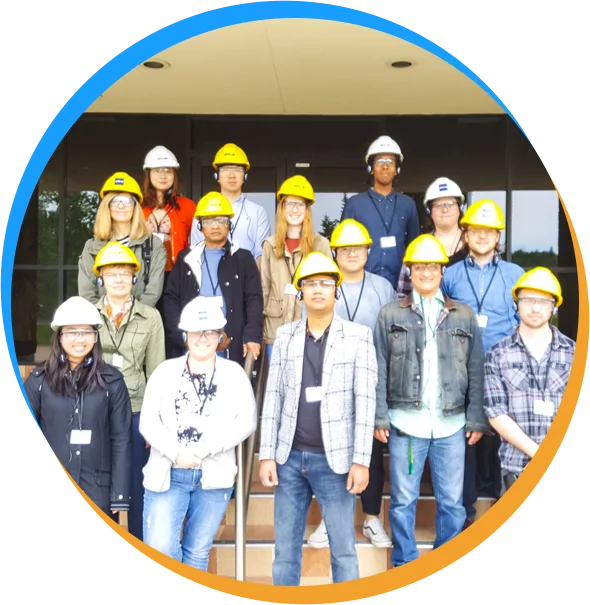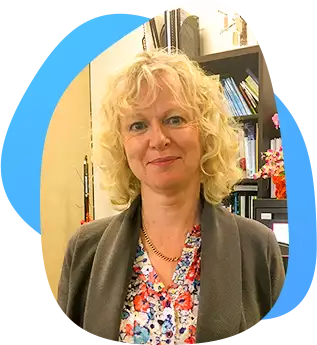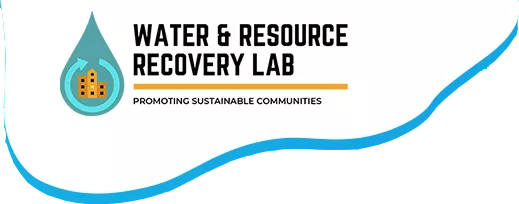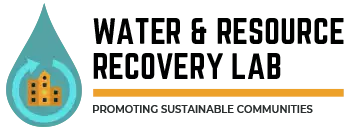Our Team
We are a group of individuals with varying backgrounds, interests, and specialties who share a common passion for water, whether that be the human interaction/impact, or the microbiological aspects.
Our team is led by Dr. Nicholas Ashbolt, an environmental microbiologist with extensive international experience with water reuse, and a professor in the School of Public Health. Water reuse and resource recovery involves science, engineering, society, regulations, the environment, and the economy. Therefore, our team has expertise in microbiology, risk assessment, community engagement, engineering, and policy development.

Team Lead

Nicholas Ashbolt, PhD
Dr. Ashbolt is a Professor in the School of Public Health, University of Alberta and the Alberta Innovates Health Solutions Translational Chair in Waterborne Disease Prevention.
His research focuses on next-generation municipal water services (drinking water, wastewater, stormwater) framed around resource recovery (i.e. water, energy, fertilizers) for improved ecohealth and living conditions; integrated with quantitative microbial risk assessment (QMRA) to identify research gaps and management targets.
He has 30 years experience in health-related water microbiology, mostly in the field of environmental pathogen detection, fate and transport. Over the previous 20 years he has worked in joint Australian-Sweden and European programs, developing methods to interpret pathogen data with the aid of quantitative microbial risk assessment within an urban water sustainability framework. His work has directly contributed to WHO, U.S. EPA, Australian and Canadian guidelines for water.

Jane Springett, PhD
Dr. Springett is a Professor in the School of Public Health, University of Alberta. She also works with international partners to coordinate both the International Collaboration on Participatory Health Research (ICPHR) and the Collaborative Action Research Network (CARN).
She is committed to participatory action research (PAR) based on an ecological world view and a principles driven approach to research and knowledge development. Her background is in urban geography, but she has been working in the area of health and health promotion for nearly 25 years, coming to it through the World Health Organization’s Healthy Cities Project. She brings a wealth of experience from working in the United Kingdom (UK) and many other countries, including Sweden, Mexico and Kyrgyzstan.
Social Engagement Team

Debra Hopkins, PhD candidate
Using qualitative methods, Debra’s research focuses on understanding the relationship between people and water reuse receptivity in the urban setting of Edmonton and the surrounding area. She is keenly interested in applying natural and social scientific methodologies to better understand the human environment interface relating to health and well-being.

Jacqueline Noga, MSc
Social Research Coordinator
Jacqueline coordinates the social research activities and networking for the Water Reuse and Resource Recovery Lab. She organizes data gathering activities including interviews, focus groups, and workshops.

Zaneta Chui, MSc student
Zaneta is looking at regulatory factors involved in the water and resource recovery approval process.

Heather Nixdorff, MSc
Research Assistant
Heather assists in the social engagement research activities, including interviewing, analysis. She also keeps the website updated.
Microbiology Team

Candis Scott, BSc
Laboratory Technician
Candis provides technical lab bench support for various projects of the Water and Resource Recovery Lab.

Lena Dlusskaya, PhD student
Lena’s research focuses on developing new technologies to monitor and quantify viruses in treated wastewater that is intended for reuse.

Mariem Oloroso, MSc student
Mariem is investigating emerging bacterial pathogens in wastewater. She is looking at where these bacteria grow in wastewater and whether they have interactions with other microorganisms that may have implications on wastewater treatment efficacy and public health.

Md Murad Mufty, PhD student
Murad works on identifying antibiotic resistant bacteria growing within biofilms found in household and industrial water pipes. This research gives insight on lurking health risks associated with the transport of water reuse.

Md Shaheen, PhD student
Md Shaheen is researching on the growth of pathogenic Legionella and its interactions with amoebae within building water-pipe biofilms. This research aims to provide directions for developing better monitoring and management policy for large building water systems (e.g., hospitals, hotels, condominiums) to ensure public health.

Melanie Folkins, MSc student
Melanie is looking to determine how enteric viruses are entering and being internalized into free-living amoebae commonly found in waste-water. She is also looking at whether free-living amoebae are capable of providing protective effects to internalized enteric viruses throughout treatment and disinfection processes used at water treatment plants.

Nancy Price, PhD
Research Associate and Lab Manager
Nancy manages the financial/HR administration and provides technical support for the Water and Resource Recovery Lab.

Rafik Dey, PhD
Research Associate
Rafik’s research interests include free-living amebae, ameba-resisting bacteria and water system management (biofilms and environmental pathogens).

Sen Yang, PhD student
Sen works on the treatment of wastewater and the feasibility of energy-efficient biological processes for treating high strength ammonia side streams.

Sieren Wang, BSc
Research Assistant
Sieren looks at free-living amoebae and bacteria which can persist digestion within amoebae, allowing bacterial spread into surrounding water systems. She also participates in developing methods to detect these bacteria within amoebae.

Qiaozhi Li, PhD
QMRA Analyst
Qiaozhi is a senior Biostatistician providing statistical analysis and Quantitative Microbial Risk Assessment (QMRA) for the Water and Resource Recovery Lab.


